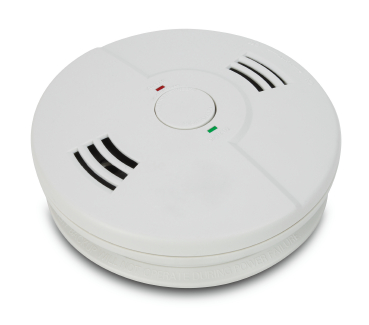
Latest Listings

- South Wentworthville$849,000-$899,000
- 3 Bed 2 Bath 2 Car

- Kenthurst$2,999,000-$3,099,000
- 6 Bed 5 Bath 2 Car Pool

- Pendle Hill$439,000-$459,000
- 2 Bed 1 Bath 1 Car
Being a
Landlord
When you rent out a home in NSW and become a 'landlord', knowing your rights and responsibilities will help you avoid or resolve differences you may have with your tenant.
In this section, you will find information to help you understand what the tenancy laws in NSW mean for you, at the beginning, middle or end of a tenancy.
Starting a tenancy
Discrimination in the rental market.
Information for landlords of rental properties
Everybody should be given a ‘Fair Go’ when renting or
trying to rent a property. The view that "it’s my property
so I can choose who I like†only goes so far. You have the
right to choose the most suitable tenant provided no unfair
discrimination occurs.
Anti-discrimination laws
The law
states that you, or as your agent, must not discriminate
against anyone, or harass them, because of their-
- Race (colour, nationality or descent)
- Sex (male or female)
- Pregnancy
- Marital status (e.g. singles or unmarried mothers)
- Disability (physical, intellectual or psychiatric disability)
- Homosexuality (gay men and lesbians)
- Age (both young or old)
- Transgender (transsexual)
It is also against the law to discriminate against a person
because of the race, sex, pregnancy, marital status,
disability, homosexuality, age or transgender of their
relatives, friends or associates.
As long as you are not discriminating on one of the above
listed grounds you may rent to whoever you like. If you do
not want smokers in your premises or tenants with pets, or
if you reject an application because of a poor tenancy
history or do not think the tenant can pay the rent there
is no law to stop you from declining an application for
that.
Completing a tenancy agreement
A
residential tenancy agreement (also called a lease) is an
agreement between you and the tenant to live in your
premises in return for payment of an agreed rent. The
agreement is a legal contract which sets out the terms and
conditions of the arrangement. We complete and sign a
written tenancy agreement on your behalf at the start of
each tenancy. Before the tenant signs the agreement they
must be given a copy.
Types of agreement
There are two
types of tenancy agreement-
Fixed term agreement
This is where the agreement is for a fixed period of time
(such as for 6 or 12 months or other agreed period) and
specifies an end date. A fixed term agreement is used at
either the start of a tenancy or when the parties are
renewing the agreement once the original fixed term period
has ended.
Periodic (continuing) agreement
This
is a tenancy for an indefinite period. You automatically
move to a periodic agreement when a fixed term agreement
ends, if the tenant remains and no new agreement is signed.
You can have a periodic agreement from the beginning but
this is uncommon. In a periodic agreement, you and the
tenant must follow the rules set out in the original
agreement (or in the prescribed standard agreement if there
wasn’t a signed agreement).
The rights and obligations under both types of agreements
are generally the same. However, there are differences in
relation to terminating the tenancy and rent
increases.
If you fail to have a written agreement in the proper form
at the start of a tenancy, penalties can be imposed. In
addition, you are unable to evict the tenant without a
reason or put the rent up during the first 6 months.
Additional terms
There are 40
mandatory terms in the standard form of tenancy agreement.
There are also two optional additional terms about ‘break
fees’ and ‘pets’. You need to decide if you want these two
terms to stay in the agreement. If not, they will need to
be deleted before anyone signs.
Other additional terms may be added to the agreement so
long as they-
- Do not conflict with the tenancy laws or any other laws and
- Do not conflict with the standard terms of the agreement
- However, there are a number of terms which are
prohibited from being added to a tenancy agreement
These are terms which would-
- Require the tenant to have the carpet professionally cleaned, or pay the cost of such cleaning, at the end of the tenancy (except as part of a separate arrangement to allow the tenant to keep a pet on the premises)
- Require the tenant to take out any form of insurance, such as home contents or public liability insurance
- Exempt the landlord, agent or any other person from legal liability for any negligent act or omission
- Require the tenant to pay a higher rent, a penalty or some other form of damages if they breach the agreement
- Give the tenant a reduced rent or rebate for not breaching the agreement or
- Require the tenant to use the services of a particular
person or business to carry out their obligations under the
agreement, such as a nominated lawn mowing or pool cleaning
company
Any additional terms which are prohibited or conflict with
the law or the standard terms are void and unenforceable.
Penalties can be imposed for including prohibited terms in
a tenancy agreement.
Giving the tenant a copy
As your
agent, we must give a copy of the tenancy agreement to the
tenant at the time they sign it. If that copy has not been
signed by us on your behalf, a fully signed copy must be
given to the tenant as soon as possible. If the agreement
is for a period of more than 3 years and needs to be
registered with the Land and Property Management Authority,
and we should provide the tenant with a copy of the
agreement as soon as possible after it has been registered.
Filling out a condition report
At
the start of every tenancy we need to fill out a condition
report on your behalf. This is a record of the general
condition of the property, on a room by room basis,
including fittings and fixtures. We need to fill it out
with as much detail and accuracy as possible. The condition
report will be a key piece of evidence at the end of the
tenancy if there is a dispute about who should pay for
cleaning, damage or the replacement of missing items.
Completing the report
The condition
report needs to be filled out before the tenant moves in.
We need to give two copies of the report to the tenant
either before or at the time they sign the tenancy
agreement. It is often minor damage which causes disputes
rather than obvious damage so make sure any damage, however
minor, is noted and is suitably described.
You may wish us to take photos or videos, which have the
date on them, to back up the written condition report.We
will complete the report by doing a physical inspection and
not by memory. The report should reflect the age and state
of the premises. For example, if the property is not new,
and has not been recently renovated, any existing damage or
wear and tear needs to be noted on the report.
The condition report form may be adapted to suit individual
premises, e.g. by adding extra rooms if the property is
larger. If there is not enough room on the report, we will
attach extra pages and make sure they are signed and dated
as well as noting the number of extra pages on the original
condition report. A condition report needs to be filled out
whether or not a rental bond is taken. However, a condition
report is not needed when the same parties are renewing a
tenancy agreement or when a new co-tenant or occupant moves
in.
Returning the report
The tenant is
required to complete their part of the condition report and
return a copy to you within 7 days of receiving it. We will
check to see if they have added anything which we disagree
with. You can apply to the Consumer, Trader and Tenancy
Tribunal for an order to amend comments made on the report
by the tenant.
If the tenant fails to return a copy, we may wish to send
them a reminder letter or we can apply to the Consumer
Tribunal for an order directing the tenant to complete and
return the report. If they still do not return it, in the
event of a bond dispute, the Tribunal will most likely
accept your report unless the tenant comes up with some
other evidence to the contrary. We will keep the condition
report for the duration of the tenancy as you will need to
complete it when the tenancy ends.
From tenants of rented properties
A
rental bond is money we can request the tenant to pay as a
form of security in case they breach the tenancy agreement.
A bond will not be treated as a substitute for careful
selection of prospective tenants. All bonds must be lodged
with Fair Trading and you can make a claim against the bond
for certain reasons after the tenancy ends.
Most tenants do the right thing and get their bond back at
the end of the tenancy. However, sometimes a bond is not
enough to cover the damage and rent owed by a tenant.
Amount of rental bond
Rental bonds
are not compulsory, but it is highly recommended that a
bond be taken unless there is a good reason not to.
No more than four weeks' rent can be charged as a rental
bond. This applies to all rental properties in NSW, whether
furnished or unfurnished. Higher bonds cannot be charged
for tenants with pets, children or for any other
reason.
A rental bond must be in money, and cannot be in any other
form, such as personal goods or a written guarantee from
the tenant's friends or relatives. The only exception is
for Tenancy Guarantees issued by Housing NSW. These
guarantees (of up to $1000 over and above any bond paid)
help those with a limited or poor rental history to rent a
place in the private rental market.
A rental bond can only be accepted when the tenant signs
the tenancy agreement. Bonds cannot be taken before the
agreement is being entered into, such as from applicants
for the tenancy or from those who have paid a holding fee.
We can only take one bond for a tenancy. That is, if there
is more than one tenant, you cannot take a separate bond
from each of them.
Rent in advance
At
the beginning of the tenancy, the tenant can be required to
pay the first two weeks' rent. This is not another form of
bond. The tenant is simply paying their rent in advance,
meaning that no rent is due until two weeks have passed.
Besides a rental bond and two weeks' rent in advance, you
cannot ask the tenant for any other money at the start of a
tenancy.
Bond lodgement
When we take a bond
from a tenant you must give a receipt or record the payment
details on the tenancy agreement. The bond must be lodged
with NSW Fair Trading. We cannot keep the money or put it
into an account in the tenant’s name.
We need to fill out and get the tenant to sign a Rental
Bond Lodgement form. Bonds can be lodged by posting the
Lodgement Form along with a cheque/money order for the
amount of the bond to the address on the form or in person
at any Fair Trading Centre.
If you are letting and managing the property yourself you
have 10 working days in which to lodge the bond with Fair
Trading. If you have employed us as agent we will lodge the
bond and handle the paperwork. Agents have 10 working days
from the end of each month in which to lodge all bonds
received during that month. These are maximum timeframes
and you can lodge a bond sooner.
We will receive confirmation (with the bond number) from
Fair Trading once the bond is processed. It is advisable to
only accept bond payments in the form of cash, bank cheque
or bank transfer from the tenant's account.
Fair Trading does not accept liability for a tenant's
dishonoured personal bond cheque. If the cheque bounces
this means you have no bond or security. We will need to
try to collect the money again and re-lodge the bond or
issue a termination notice for breach of the tenancy
agreement.
Updating bond records
If the name or
contact details of the landlord, agent or co-tenants
changes during the tenancy, a Change of Shared Tenancy
Arrangement or Change of Managing Agent/Owner form will
need to be completed and lodged with NSW Fair
Trading.
Smoke alarms
In residential premises
To enhance safety and
minimise loss-of-life in building fires, the NSW Parliament
enacted the Building Legislation Amendment (Smoke Alarms)
Act in July 2005. The Act allows regulations to be made to
require smoke alarms to be installed in existing buildings
in which people sleep. A smoke alarm is an effective early
warning device designed to detect smoke and alert building
occupants to the presence of a fire. Installed in the
correct location, it increases the time available for safe
escape.
From 1 May 2006, when the Environmental Planning and
Assessment Amendment (Smoke Alarms) Regulation 2006 came
into effect, owners of residential property are responsible
for ensuring smoke alarms are installed.The Smoke Alarms
Regulation specifies which types of buildings need smoke
alarms installed, the types of alarms, where they are to be
located and other matters. Contact details for more
information about the requirements under the Regulation are
listed in this fact sheet.
Changes to fair trading laws
Several
fair trading laws were amended as a result of the smoke
alarm laws and this information summarises these changes
for the people that are affected.
Landlords and tenants
Under the
Residential Tenancies Act-
- Landlords are responsible for the installation of smoke alarms in rented premises.
- Landlords have the right of access to rented premises to fit or maintain smoke alarms after giving the tenant at least 2 days notice.
- Neither the landlord nor the tenant are, except with reasonable excuse, permitted to remove or interfere with the operation of a smoke alarm fitted in the rented premises.
- Where a smoke alarm is of the type that has a replaceable battery, it is recommended that the landlord put a new battery in at the commencement of a tenancy.
- After the tenancy begins, the tenant is responsible for replacing the battery if needed. Fire and Rescue NSW can assist elderly tenants or those physically unable to change a smoke detector battery.
- The condition report includes a specific reference to
smoke alarms so that tenants and landlords are able to note
and comment on the presence of smoke alarms at the
beginning and end of the tenancy
IMPORTANT – Owners of residential property who rent out their premises as holiday accommodation are responsible for installing smoke alarms and replacing batteries.
Strata scheme lot owners
In a strata scheme-
• Owners of lots can install smoke
alarms in their lots without having to obtain approval of
the owner’s corporation.
• There is an obligation on lot owners to repair any
damage to common property caused by the installation of a
smoke alarm.
Lot owners who rent out their strata scheme residential
property should note their responsibilities as landlords in
relation to smoke alarms under the Residential Tenancies
Act 2010.